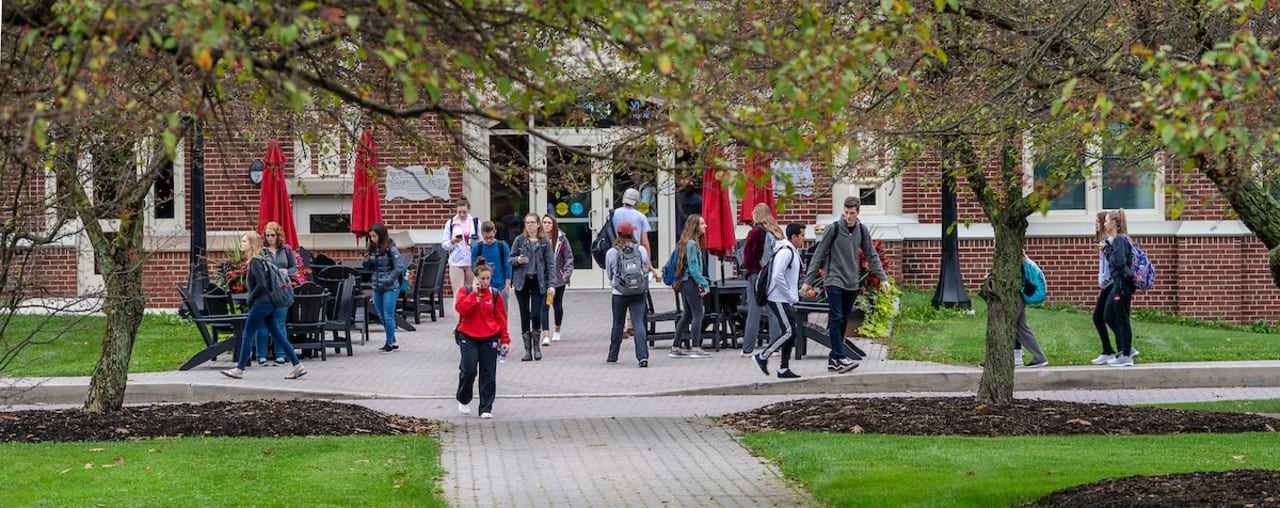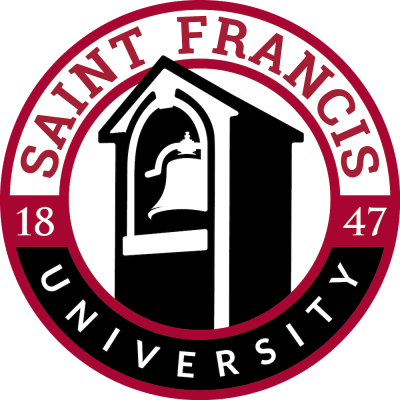
Bachelor of Science in Medical Laboratory Science
Saint Francis University

Key Information
Campus location
Loretto, USA
Languages
English
Study format
On-Campus
Duration
4 years
Pace
Full time
Tuition fees
Request info
Application deadline
Request info
Earliest start date
Aug 2024
Scholarships
Explore scholarship opportunities to help fund your studies
Introduction
Study Medical Laboratory Science at Saint Francis University
Gain the technical & academic skills you need to succeed in our 3+1 Bachelor of Science degree in Medical Laboratory Science.
In this program, students spend their first three years pursuing an intensive study of biology and chemistry to gain a foundation in science at SFU. For the fourth year of study, students attend an affiliated hospital Medical Laboratory Science training program to complete their B.S. degree and receive specialized training.
Did you know?
Medical Laboratory Scientists, also known as Medical Technologists or Clinical Laboratory Scientists, are healthcare professionals who work in laboratories and perform a variety of diagnostic tests on human samples including PCR tests for Covid-19, along with other genetic analyses, and tests involving microscopy, urinalysis, and blood samples. They have expertise in biology and chemistry and are trained in the use of state-of-the-art diagnostic equipment.
- 100% of recent graduates from this program have found immediate employment as Medical Laboratory Scientists
- Begin research projects as early as your freshman year
- Classrooms, labs, and collaboration areas are housed within our brand-new 70,000-square-foot facility
Explore all that a degree in Medical Laboratory Science has to offer!
Medical Laboratory Scientists are in high demand. At Saint Francis University we know that becoming a successful scientist requires an immersive and dynamic collegiate experience. Your interests will determine your unique path at Saint Francis — it’s all up to you.
The SFU Learning Experience
Clinical Experience
Following the didactic years at Saint Francis, students then apply to one of our affiliated Medical Laboratory Science (MLS) schools listed below. Upon acceptance, students spend their fourth year gaining clinical expertise in subjects that include:
- Clinical Chemistry
- Immunohematology and Blood Banking
- Bacteriology
- Parasitology
- Immunoserology
- Urinalysis
Club Involvement
- Biology Club: The Biology club has been designed to enhance the education and biology interests of students on campus. Activities and trips allow students to explore the world in a fun and educational way. Speakers are frequently invited in to allow students to gain perspective and a greater understanding of many topics related to biology. This club is designed to help students prepare for their future in the sciences as well as to offer opportunities to participate in fellowship and networking activities.
- TriBeta Biological Honor Society: Saint Francis is home to the Upsilon Beta Chapter of Beta Beta Beta, the National Biological Honor Society. Our chapter was established in 1980 with twenty active student members and five faculty. Since that time, the Upsilon Beta chapter has inducted 199 regular, 33 associate, and 5 faculty members. Numerous student members have received research scholarship grants from the TriBeta national office, and presented their research at the District Convention. Students who place in the poster or oral presentations receive a scholarship to attend the national meeting. Saint Francis University hosted the NE3 district convention for the first time in 2007.
Undergraduate Research
Students conduct research in small teams that work closely with faculty members in dedicated student/faculty research labs. Many students begin research as freshmen, and students can work with multiple faculty on different projects over their three years at SFU.
Curriculum
Courses Required for the Major: (81 credits)
Course Requirements in Biology: 23 credits
- BIOL 111 - Introduction to Biology: Molecules, Cells, and Animal Physiology
- BIOL 131 - Biology Freshman Seminar
- BIOL 205 - Human Anatomy and Physiology I
- BIOL 206 - Human Anatomy and Physiology II
- BIOL 214 - Clinical Microbiology
- BIOL 231 - Biology Sophomore Seminar
- BIOL 301 - Genetics
- BIOL 305 - Immunology
- BIOL 331 - Biology Junior Seminar
Collateral Requirements: 26-27 credits
- MATH 121 - Calculus I
- Or MATH 112 - Intuitive Calculus
- PHYS 104 - An Introduction to Physics I
- Or PHYS 121 - General Physics I
- CHEM 121 - General Chemistry I
- CHEM 122 - General Chemistry II
- CHEM 221 - Organic Chemistry I
- CHEM 222 - Organic Chemistry II
One of the following statistics courses:
- STAT 205 - Essentials of Statistics
- MATH 215 - Introductory Statistics
- BIOL 315 - Biostatistics
Hospital Medical Laboratory Science Program Training: 32 credits
Qualified students will transfer to a hospital with a NAACLS-Accredited School of Medical Technology for their senior year. The student earns 32 credits in courses such as clinical chemistry, immunology, bacteriology, etc., which will appear on the student’s SFU transcript as transfer credits toward the completion of their bachelor’s degree, but will not be used in the determination of the student’s final grade point average (GPA).
Program Outcome
Upon successful completion of the undergraduate Medical Laboratory Science program, graduates will be able to:
- Scientific Method: employ the scientific method, including the use of discipline-specific techniques, to discover and validate biological knowledge.
- Scientific Literacy: demonstrate scientific literacy through reading, writing, presenting, and discussing research.
- Biochemistry & Cellular Biology: demonstrate knowledge of how atoms and molecules interact to permit the function of living systems, and how cells sense, control, and respond to stimuli in their environments.
- Molecular Genetics: demonstrate knowledge of molecular genetics and how this leads to the expression and inheritance of traits.
- ASCP Board Certification Exam: be prepared to successfully pass ASCP board certification examinations upon completion of the program.
- Job Placement: Graduates from our program immediately should find employment, or enroll in further relevant graduate/professional training programs.
Career Opportunities
Medical Laboratory Scientists are in high demand. According to the Occupational Outlook Handbook projects that demand for these jobs will grow by 11% from 2020 and 2030. The median national salary is $55,990. Within Pennsylvania, the median salary is slightly lower at $50,040-$53,700 (Source: U.S. Bureau of Labor Statistics).
Once our students have passed the clinical examination they have found employment. Most of our former students work in a hospital lab, but there is potential to work in a forensic or private lab. Our recent students have received employment offers in Pennsylvania and a few other states. For example, recent graduate Anna Wolfe ('19) is employed at Johns Hopkins Hospital in Maryland.
English Language Requirements
Certify your English proficiency with the Duolingo English Test! The DET is a convenient, fast, and affordable online English test accepted by over 4,000 universities (like this one) around the world.